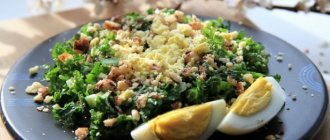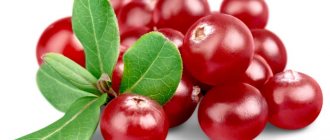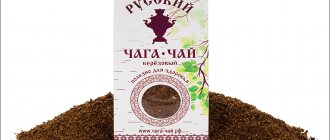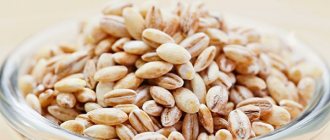The health benefits of fruits are undeniable.
In addition to their rich vitamin and mineral composition, fruits have a low calorie content, so numerous diets have been developed based on them. Thanks to the antioxidant properties of fruits, we look young and fresh, able to work actively and relax. Fruits are an excellent second breakfast, afternoon snack or snack.
Even the appearance of most fruits improves your mood; a ruddy apple or a fragrant pear is a reasonable alternative to sweets and buns. For gastritis, fruits are regularly included in the menu. However, they are consumed following certain rules. We'll tell you which ones.
Selection rules
If you suffer from chronic gastritis, choose the right fruits, taking into account your doctor’s recommendations:
- For acute gastritis, fresh fruits are prohibited. The ban also applies to the stage of exacerbation of chronic gastritis of any form. Fresh fruits are not consumed at this time, and after the symptoms subside, they are introduced gradually, in the form of homogenized fruit purees, jelly, compotes, and jellies.
- With hypoacid gastritis, during the period of remission, sweet and sour fruits with soft skin are allowed.
- With normal acidity in the remission stage, fresh fruits are allowed, but it is not recommended to eat in limited quantities - more than 3 - 4 pieces per day.
- For hyperacid gastritis, only sweet fruits can be consumed fresh, which do not affect acidity or reduce it due to their astringent and enveloping properties. Good choices are sweet pears, persimmons, and avocados.
- In case of erosive and atrophic gastritis, you should completely exclude foods that can injure the mucous membrane. Therefore, before eating, be sure to remove the skin and chop the fruit. For these forms of the disease, the same fruits are recommended as for high acidity.
- Fresh fruits for all forms of gastritis are limited to 2 - 3 fruits per day, with the exception of gastritis with a normal acidity level, when it is permissible to include up to 4 medium fruits in the diet.
Orange beneficial and harmful properties
The rich chemical composition gives the ripe orange properties that, when consumed, help the human body better tolerate fatigue, reduce sensitivity to cold, promote rapid healing of wounds, and increase appetite.
Oranges are rich in phytoncides and pectin elements, which have an anti-inflammatory effect and normalize the activity of the entire digestive system.
The well-balanced ratio of vitamins C and P in orange is very useful, because reduces the permeability of vessel walls, maintains blood pressure and redox processes at the proper level, treats atherosclerosis complicated by hypertension; obesity; gout; infectious and acute respiratory diseases (ARD); insufficient and intense bile secretion; diseases complicated by edema are not a complete list of diseases that eating oranges can help get rid of.
For constipation, it is recommended to eat them in the morning on an empty stomach and in the evening. For urolithiasis and some chronic gallbladder diseases, you can drink a mixture of orange, lemon and black radish juices, sweetened with fructose or honey.
If you have a peptic ulcer of the stomach, duodenum, gastritis with high acidity of gastric juice, or if you have inflammation of the pancreas or small intestine, oranges should not be consumed.
Orange is recommended for the treatment of rheumatism, bicuspid heart disease and heart muscle failure. This is not surprising, since the glycosides of orange peel are close to the glycosides of drugs that are prescribed to treat a number of diseases of the cardiovascular system.
In some children, oranges, especially after a long break from eating them, can cause allergies. However, this reaction is not always stable and can be significantly weakened or completely eliminated by introducing into the diet a gradually increasing amount of orange juice in compote or jelly.
Harm of orange
The high content of acids and sugar makes oranges harmful for peptic ulcers, gastritis, and diabetes. For the same reason, oranges do not have a very good effect on the condition of tooth enamel, thinning it, resulting in increased tooth sensitivity. It is worth recalling allergic reactions to citrus fruits, which are extremely common in the modern world. This is where the contraindications to consuming these fruits end; the issue of the relationship between harm and benefit of oranges is always decided individually.
Effect on the stomach
The digestion time of fresh fruits in the stomach is about 40 minutes. Soft fruits - apricots, peaches - are digested faster, hard ones - slower. Pectins and fiber, contained in most fruits, have a tonic effect on the intestines, stimulate digestive processes, and cleanse the body of toxins and waste.
However, if the recommended volumes are exceeded, fruits perform unkind services:
- Apples increase gas formation and cause flatulence.
- Peaches, apricots and bananas can cause diarrhea.
- Pears eaten on an empty stomach cause pain and heaviness in the stomach.
- Grapes for gastritis can cause stomach upset and aggravation if consumed with skins and seeds.
Baked fruits have a milder effect on the mucous membrane. You can bake apples, pears, and quinces in the oven. Adding sugar or honey is not recommended.
Kissel or fruit jelly is the best option for a patient with gastritis. Fruits added to cottage cheese casserole or porridge are well digested. In this case, you need to select only from the permitted assortment.
Homogenized puree is difficult to prepare at home. During the period of exacerbation, we recommend using baby food products; baby fruit purees are easily digestible and do not irritate the mucous membranes.
Now let's talk about those types of fruits with which you should be especially careful.
Benefits of oranges
Any fruit is very healthy, and nutritionists and doctors never tire of repeating the benefits of citrus fruits. These fruits contain a record amount of ascorbic acid, and this substance is necessary for maintaining health.
In addition to vitamins, the fruit contains a lot of potassium, this element is necessary to maintain the cardiovascular system. Citrus fruits contain fiber, but not in large quantities, so eating fruits does not create additional stress on the digestive tract.
Due to the high content of vitamins and microelements in oranges, these tasty fruits have the following effects:
- Strengthen immunity. Therefore, it is especially useful to eat oranges in the spring, when the body, weakened after winter, cannot resist infections.
- They have an anti-inflammatory effect. The presence of special phytoncides allows you to quickly cope with inflammation.
- Strengthens blood vessels. This reduces the risk of bleeding.
- Reduces cholesterol. Thus, regular consumption of oranges can reduce cholesterol levels.
- They have an antioxidant effect. Citrus fruits contain substances that destroy free radicals.
- Reduce the risk of developing blood clots. Substances contained in oranges help normalize blood viscosity levels.
Plum
For gastritis, it is better to consume plums in the form of compote, jelly and juice, half diluted with water. With high acidity, erosion and atrophy, nutritionists do not recommend including plums in the menu, since even sweet varieties increase acidity.
Important! The recommended amount of plums for normoacid and hypoacid gastritis is no more than 5 pieces per day.
Plums have strong laxative properties, so they are undesirable in the menu of patients with “weak” intestines.
Choosing the right fruits
The main criterion for selecting citrus fruits is their appearance. The peel of tangerines should not be too dry, stained or dented. It should shine, be thick, with tubercles, and fragrant. This ensures that the fruit is fresh, recently picked and brought from the tropics. Sour fruits tend to be larger than sweet ones.
The bright orange color of tangerines indicates that they contain a lot of seeds. The brighter the color of the peel, the more seeds they contain.
High-quality oranges are smooth, bright, heavy, and have a rich aroma. The thickness of the peel does not affect its taste
There is no need to pay attention to the large size of the fruit. Large oranges are not always sweet and juicy, but medium ones, on the contrary, can be very tasty
Ripe kiwis are usually firm but firm. It is not very healthy to eat overripe, loose kiwi fruits, so it is better not to buy these. As for garnets, good examples weigh about 0.5 kg. A ripe pomegranate has a dry, hard top, in the form of triangular petals.
It is better to store uneaten fruit at room temperature rather than in the refrigerator.
Tangerines, oranges and lemons for stomach diseases can be eaten when the patient is diagnosed with “insufficient activity of the gastric glands.” By following all the rules prescribed by the doctor, you can avoid complications and get only the benefits of eating citrus fruits.
Are there citrus fruits?
Absolutely complete for high acidity, erosive and atrophic forms of gastritis. Citrus fruits greatly increase the level of hydrochloric acid; an exacerbation after them is guaranteed even with remission of the disease.
If the acidity is low and normal, then you shouldn’t eat citrus fruits either.
- Orange, grapefruit, tangerine, pomelo are best consumed in the form of freshly squeezed juice, 100 ml no more than 3 times a day. Industrially produced juices are prohibited.
- Lemon tea can be drunk warm, no more than 2 cups, and only after a main meal. Tea with lemon daily is not recommended.
- In any form of the disease, it is better to avoid lime completely; the fruit is very sour, and even with low acidity it can provoke an exacerbation.
Is it possible to eat oranges if you have gastritis?
Gastritis has several subtypes. Each of them has its own diet and its own list of prohibited foods. Although the diets are not very different. If you are unsure whether you can eat oranges or other fruits, consult your doctor. At a minimum, you need to find out an accurate diagnosis. Until then, it’s better not to eat anything “dangerous.”
Citrus fruits may increase stomach acid levels
Pomegranate
The fruits of the pomegranate tree have many beneficial qualities. For gastritis, pomegranates are not prohibited, with the exception of forms of the disease accompanied by constipation .
- For hyperacid gastritis, pomegranate is allowed only in the form of juice, 100 ml per day, no more. The juice must be freshly squeezed and can only be drunk in diluted form. Pomegranate juice is diluted with boiled water in a 1:1 ratio. For erosive and atrophic forms, pomegranate juice is also used.
- Pomegranate stimulates the production of digestive enzymes, hydrochloric acid, and eliminates diarrhea. Therefore, with the hypoacid form, it is permissible to include in the diet not only juice, but also pomegranate pulp. Sauces based on pomegranate juice or grains, which are served with meat dishes, perfectly diversify the menu.
Since the structure of the fruit is complex and contains many seeds, consult your doctor before introducing pomegranate into your diet.
Ten reasons why a person needs oranges
Even children know that any fruit is good for health. But orange is especially necessary for both growing and adult bodies. It contains a colossal amount of vitamin C and potassium. This set helps improve metabolism. Orange helps keep the body in good shape and is a powerful preventative against heart and vascular diseases and vitamin deficiency.
Below are 10 reasons why it is very important to eat oranges regularly for gastritis with low acidity:
- They improve your immunity. Therefore, any illness will be much easier for the body to overcome.
- They contain many phytoncides that have an anti-inflammatory effect.
- Oranges help strengthen blood vessels, so the risk of bleeding is reduced several times.
- Citrus fruits create favorable microflora throughout the gastrointestinal tract. Digestion processes are much better.
- Cholesterol levels return to normal.
- Damaged tissues begin to recover faster.
- Oranges differ from other fruits in their powerful antioxidant effect.
- They make your blood less viscous. Therefore, dealing with intoxication becomes much easier.
- The small and large circles of blood circulation improve their functioning.
- The functioning of all organs of the body is also stabilized.
Of course, you shouldn’t try to cure gastritis with oranges, especially if the acidity is high. Would you like to drink some freshly squeezed juice? Be sure to dilute it with water in a 1:1 ratio. It’s better not to add sugar - it won’t bring much benefit to the body anyway. Did you feel like your stomach was hurting from fruit? We remove them from the diet and ask the doctor: is it possible to eat oranges? Because it is the attending gastroenterologist who best knows what diet to recommend to you.
Kiwi
The attitude of nutritionists towards kiwi fruits is positive - experts value it for its soft structure, strong antioxidant and immunostimulating properties.
Kiwi is a good prevention of anemia, which often accompanies gastritis. However, in the presence of erosions and hypersecretion, a high content of organic acids comes to the fore, which will inevitably increase the level of acid in the stomach. Therefore, for hyperacid, erosive and atrophic gastritis, it is better to avoid kiwi.
Normal and reduced acidity allow the consumption of kiwi in the amount of 3 - 4 medium-sized peeled fruits. The crushed fruit can be added to yogurt and cottage cheese to make an excellent dessert.
Gastritis attack: what to do?
When there are disturbances in the functioning of internal organs, they signal their distress with pain of varying intensity. An attack of gastritis occurs with complaints of abdominal pain. There are some features of its course that will allow you to make a correct diagnosis and provide first aid for this disease.
Structure and functions of the stomach
The stomach is a hollow muscular organ; its functions include processing the food bolus with acidic gastric juice and moving it further into the duodenum. Pathogenic bacteria die in the stomach, primary protein processing takes place, and some absorption of water and glucose takes place. In addition, stomach cells are involved in the transport of vitamin B12 and secrete a number of digestive hormones.
The mucous membrane of the stomach has a layer of protective mucus that prevents the stomach from “self-digesting.” However, as a result of the aggressive effects of alcohol, the damaging effects of certain types of food and medications, and the action of Helicobacter pylori bacteria, the blood supply to the mucous membrane is disrupted and acid production increases. In this case, an inflammatory process occurs, which leads to the release of biologically active substances into the blood. This signal goes to the central nervous system and a sensation of pain is formed.
What types of gastritis are there?
Highlight:
- Acute gastritis. In this disease, pain occurs due to an intense inflammatory reaction. The cause of acute gastritis is most often the entry of pathogenic bacteria (staphylococcus, salmonella) or aggressive contents (alcohol, chemicals) into the stomach.
- Exacerbation of chronic gastritis. In this case, the intensity and nature of the pain depend on the degree of damage to the mucous membrane (superficial, erosive or atrophic gastritis) and on the localization of the process (antral, fundic or gastritis of the body of the stomach).
How does an attack proceed?
Features of the course of acute gastritis
Acute gastritis always has a clear cause, which led to inflammation of the stomach. Often occurs with high fever and vomiting. Abdominal pain is localized in the epigastric region, cutting in nature. Nausea leads to vomiting of stomach contents, which brings relief. The stool may be normal or one-time liquid.
Features of the disease in chronic form
An attack during exacerbation of chronic gastritis most often passes without an increase in body temperature. As a rule, exacerbations occur in the autumn and spring, provoked by the consumption of rough, spicy, smoked food or stress.
Pain occurs an hour or two after eating. If the mucous membrane is atrophied, they may occur half an hour later or immediately after eating. With gastroduodenitis, when the stomach and duodenum are affected, pain can occur on an empty stomach and subside when eating.
During an attack of gastritis, pain may be accompanied by nausea and vomiting, after which it becomes easier. When palpating the abdomen in the epigastric region, pain is felt, which intensifies if you tap the anterior abdominal wall in this area with your fingertips.
How to help during an attack?
Knowing what to do during an attack of gastritis, you can achieve normalization of the condition and prevent the development of complications. Erosive gastritis can lead to bleeding from the gastrointestinal tract, stomach or duodenal ulcers. We talked about the signs of such a serious and very common complication of erosive gastritis as a stomach ulcer in a separate article - Gastric ulcer: causes, classification, symptoms.
Basic recommendations:
- If the disease worsens, you can eat slimy porridges or puree soups, drink alkaline mineral water without gas.
- You can take an antispasmodic tablet, an antacid, or an antisecretory drug from the group of proton pump inhibitors.
- You can make an infusion of mint, chamomile, anise, calendula or St. John's wort. A decoction of flax seeds gives a good effect.
- In the future, you must definitely consult a doctor to undergo an examination, make an accurate diagnosis and complete a full course of treatment.
Avocado
Avocado is an exotic fruit that not everyone loves because of its unique taste. However, for gastritis, avocado is widely recommended. It has anti-inflammatory and enveloping properties without affecting acidity in any way. Therefore, even aggressive forms of gastritis are not a contraindication for including avocado in the menu.
Avocados also have some special features:
- The fruit is very high in calories and contains fatty acids, so the amount of fruit per day should be limited to 100 grams.
- Handle the avocado with care - cut the fruit lengthwise without touching the pit, which contains toxic substances. The bone is then carefully removed and discarded.
- Only ripe (not overripe or green) fruits are suitable for food.
- Peeled avocado fruit retains its beneficial properties for 10 minutes. Therefore, it is tedious to eat it right away. Otherwise, the avocado oxidizes, darkens, and the beneficial components are destroyed.
- Avocado can be used in the menu of a patient with gastritis in the following options - soup, side dish, salad ingredient, dessert, fresh fruit.
You've probably heard about side dishes, desserts and salads, but you probably don't know how to make soup. Let's talk.
Cream - avocado and poultry soup
- Cook chicken broth.
- Grind the boiled poultry in a meat grinder or blender.
- Separately, chop the raw avocado without the peel.
- Combine the chopped meat with avocado puree, dilute with broth until creamy.
- Garnish with herbs and the soup is ready.
The dish is unusual, tasty, healthy. Try it - you won't be disappointed.
The use of oranges in folk medicine
Since orange is rich in vitamins and nutrients, it is often used in folk medicine. What diseases is this fruit used to treat?
- For several centuries, oranges have been used to heal ulcers, wounds and abscesses. This is possible due to the phytoncides contained in the fruit, which kill many pathogenic microbes.
- Due to its potassium content, the fruit will be useful for patients suffering from gout, obesity, liver disease and hypertension.
- The essential oil contained in orange helps in the treatment of oral diseases.
- Orange fruits contain salicylic acid, which can help reduce fever.
- Relatively recently, Chinese doctors began to successfully use orange peel in the treatment of breast cancer.
- Orange and its peel act as a mild laxative and are often used to treat constipation. Recipe: Mix orange peel, cumin and buckthorn bark (1-1-8). Add a glass of water to one tablespoon of the mixture and bring the resulting mass to a boil. Refrigerate. Take the product twice a day, 200 g (morning and evening).
- Tincture of orange peels is used to treat acne. It cleanses oily skin, dries out acne and generally improves facial skin health. Recipe: Cut the orange zest into small pieces and pour three cups of boiling water. Let it brew for a day. Apply the mixture with a cotton swab and keep it on your face for 20 minutes, then rinse your face thoroughly with water.
- Orange peel is often used to treat bronchitis. To ease breathing during illness, use orange inhalation. In this case, a decoction is prepared from grated orange peel mixed with orange tree leaves. Allow the patient to breathe in vapors for 30 minutes.
- Thanks to its high content of vitamin C, orange tincture helps relieve migraines. Recipe: without peeling, chop three oranges and add 100 g of horseradish roots to them. The resulting mixture must be mixed with 1 kg of sugar, and then pour in 1 liter of white wine. Next, cook the mixture for about an hour, then cool it, squeeze and strain. The decoction should be taken every time 2 hours after meals, 60 ml.
Mango - be careful
Even if you are very tempted to buy a mango, remember that this exotic fruit is a strong allergen. Substances that provoke allergies are contained in the peel of the fruit.
Attention! Eating mangoes with the peel can cause Quincke's edema and even death. Mango fruit is consumed only in its peeled form.
Nutritionists allow mangoes for gastritis in the amount of several segments. There are also ardent opponents of the fruit who prohibit its use for gastritis. Fruit additions to the menu of a patient with gastritis are necessary, since following a diet with great restrictions leads to anemia, a decrease in the body's defenses, and metabolic disorders.
Rules for eating fruit with difficulty defecating
For defecation disorders, the product is consumed fresh or dried:
- The product is cleaned, cut into small slices, and dried in a dehydrator.
- Added to fruit salads, baked goods, and used to prepare laxative decoctions.
- Preference is given to ripe fruits that have not been treated with chemicals.
If the plant is treated with herbicides, this disrupts the intestinal microflora. Such chemicals act as antibiotics, which disrupts the digestion process and can cause diarrhea, nausea, vomiting, deterioration of general health, and suppression of local immunity.
Vitamins C and E, contained in excess in mangoes, help strengthen the nervous system and neutralize the effects of stress.
Mango is consumed in its pure form, added to fruit salads and smoothies. An excess of unripe fruits in the diet provokes irritation of the mucous membrane of the stomach and respiratory system, flatulence, and bloating.
How much mango do you need to eat for a laxative effect?
Adults are recommended to eat 1 piece of fruit per day. Children, depending on age, 1/4 - ½ fresh fruit or half a glass of juice. Excessive consumption of the product causes allergic reactions and constipation. The maximum daily dosage is no more than 2 ripe fruits per day. If the fruits are ineffective, the diet is reviewed, the drinking regime is observed, and medications are selected to normalize stool.
Brief information about gastritis
Gastritis is a disease characterized by inflammation of the gastric mucosa.
It appears in two forms - acute and chronic. Occurs most often due to poor diet, consumption of alcohol, salty and spicy foods. During an exacerbation, it is necessary to adhere to proper nutrition so as not to irritate the mucous membrane. If you have gastrointestinal problems, whether you can eat citrus fruits is a controversial issue. Before introducing them into the diet, it is necessary to be examined for the level of acidity of the stomach and intestinal microflora.
What to cook from tangerines
All citrus fruits are healthy for humans and contain an incredible amount of useful substances. If you suffer from gastritis, you should eat fruits carefully. When the diagnosis is unclear, it is better to stop using it altogether until you have a doctor’s report.
When acidity is high, we also don’t eat tangerines and oranges; when acidity is low, we eat them, but in limited quantities. It is best, of course, to eat tangerines raw, whole with the peel, when suffering from gastritis. But it is perfectly acceptable to use them in other ways.
For example, confectioners use tangerine slices to bake cakes and pastries. Housewives have learned to make jam from tangerines, and professional chefs prepare delicious sauces based on tangerines and often add them as a spice to cookies, fish dishes, salads, etc. In addition, you can squeeze the most beautiful juice from tangerines. The main thing is that the tangerines are ripe and not spoiled, and the rest is a matter of technique...
Tangerine jam
Tangerine jam can be prepared either in a saucepan or in a Bread Maker on the “jam” mode or in a Multicooker on the “jam, marmalade or desserts” mode or other suitable ones.
Grate about 1 teaspoon of tangerine zest and mix it in a saucepan with water. Peel the tangerines, remove the white “veins,” separate them into slices and cut them. Place the prepared tangerines in boiling water with the zest and cook for 20-30 minutes over medium heat. Then add sugar and cook, stirring occasionally, for about 20 minutes. Tangerine jam is ready.
Compote of tangerines and apples
Wash and peel the tangerines. Divide into slices. Wash the apples, remove seeds and cut into large pieces. Boil water, add sugar to it and add a cinnamon stick. Then add tangerine slices and apples to the water. When the fruit boils, add a little tangerine zest. If possible, cut off the white part to avoid bitterness. Let the compote cool completely and you can drink it.
Sources
- https://gastrox.ru/diet/mandariny-pri-gastrite.html
- https://gastritlechim.ru/gastrit/pitanie/gastrit-zheludka-mozhno-li-mandariny.html
- https://vnorg.ru/zheludok/gastrit/060-mandariny-pri-gastrite.html
- https://gastroved.com/mozhno-li-mandariny-pri-gastrite.html
- https://easymed-nn.ru/eda/fruits/mandariny-pri-gastrite.html
- https://alltravnik.ru/derevya/mandariny-i-gastrit
- https://gastrit-stop.ru/mandariny-pri-gastrite-i-jazve-zheludka/
- https://bolitzheludok.ru/gastrit/dieta/mozhno-li-est-mandariny.html
- https://gastritinform.ru/mandariny-i-gastrit/
Harm of tangerines
Citrus fruits can cause allergies, so they should not be consumed in large quantities. Allergic reactions are manifested by the following symptoms:
- Redness.
- Peeling.
- The appearance of a rash.
- Itching.
The listed signs may not appear immediately after taking citrus fruits, but after some time. In this case, tangerines must be excluded from the diet. If this is not done, there is a high risk of developing dermatitis. This disease is difficult to treat.
Unripe fruits can cause serious harm to the body. The effect of aggressive acids on the gastric mucosa can provoke the development of various pathologies of the digestive organ, as well as cause an exacerbation of existing diseases.
Very often, citrus fruits are treated with various chemicals. This improves the presentation of fruits and increases shelf life, which leads to a high content of harmful substances.
They pose a danger because they can gradually accumulate in the body and impair the functioning of all organs and systems. If mold is found on the peel, this indicates that the citrus fruit has been treated with chemicals or has been improperly stored. Such tangerines should be thrown away.
Properties of citrus fruits for gastrointestinal diseases
Moreover, the healing properties of citrus fruits are indispensable for:
- Stimulation of the regenerating properties of stomach tissue.
- Strengthening the vascular walls of the circulatory system. This ability reduces the likelihood of wounds, ulcers and eczema on the walls of the stomach, and reduces the risk of bleeding during gastritis.
- Purifying blood and reducing its viscosity. This helps reduce intoxication and overall strengthen the body.
- Normalization of cholesterol levels. This property of citrus fruits is especially valuable in the presence of any signs of gastrointestinal diseases.
However, eating oranges for gastritis is not recommended for pregnant and lactating women. In addition to the fact that they can negatively affect unstable acidity (especially during toxicosis), these fruits can provoke allergies.
If the expectant mother still does not have signs of allergic reactions, she is not bothered by heartburn, belching and bloating, there are also no symptoms of diabetes mellitus, there is no tendency to swelling and obesity, then doctors recommend consuming this exotic fruit for a short period of time, but very little at a time. a little. However, with the onset of the 21st week of pregnancy, the fetus begins to develop its own immune system. Therefore, in order not to provoke disturbances in the baby’s body in the future, you should refrain from eating citrus fruits.
The relationship between tangerines and the gastrointestinal tract
The flattened, sunny-colored fruits, beloved by all, have unique taste properties. They are indispensable for preventing colds and helping to reduce body weight. However, the relationship of the gastrointestinal tract with nutritious and melt-in-your-mouth citrus fruits is ambivalent.
This type of citrus fruit normalizes digestion, improves appetite, and is recommended for dysbacteriosis, stool disorders and gases. Antioxidants (C, A, D, E) contained in citrus fruits reduce inflammation and also prevent intestinal irritation. But in contrast to this, with gastrointestinal diseases, affecting the mucous membrane, they can irreparably damage the stomach, leading to discomfort and pain, and cause various complications. Gastroenterologists believe that consuming tangerines is harmful if:
- Gastroenterocolitis;
- Ulcer;
- Allergies;
- Diseases of the liver and pancreas.











